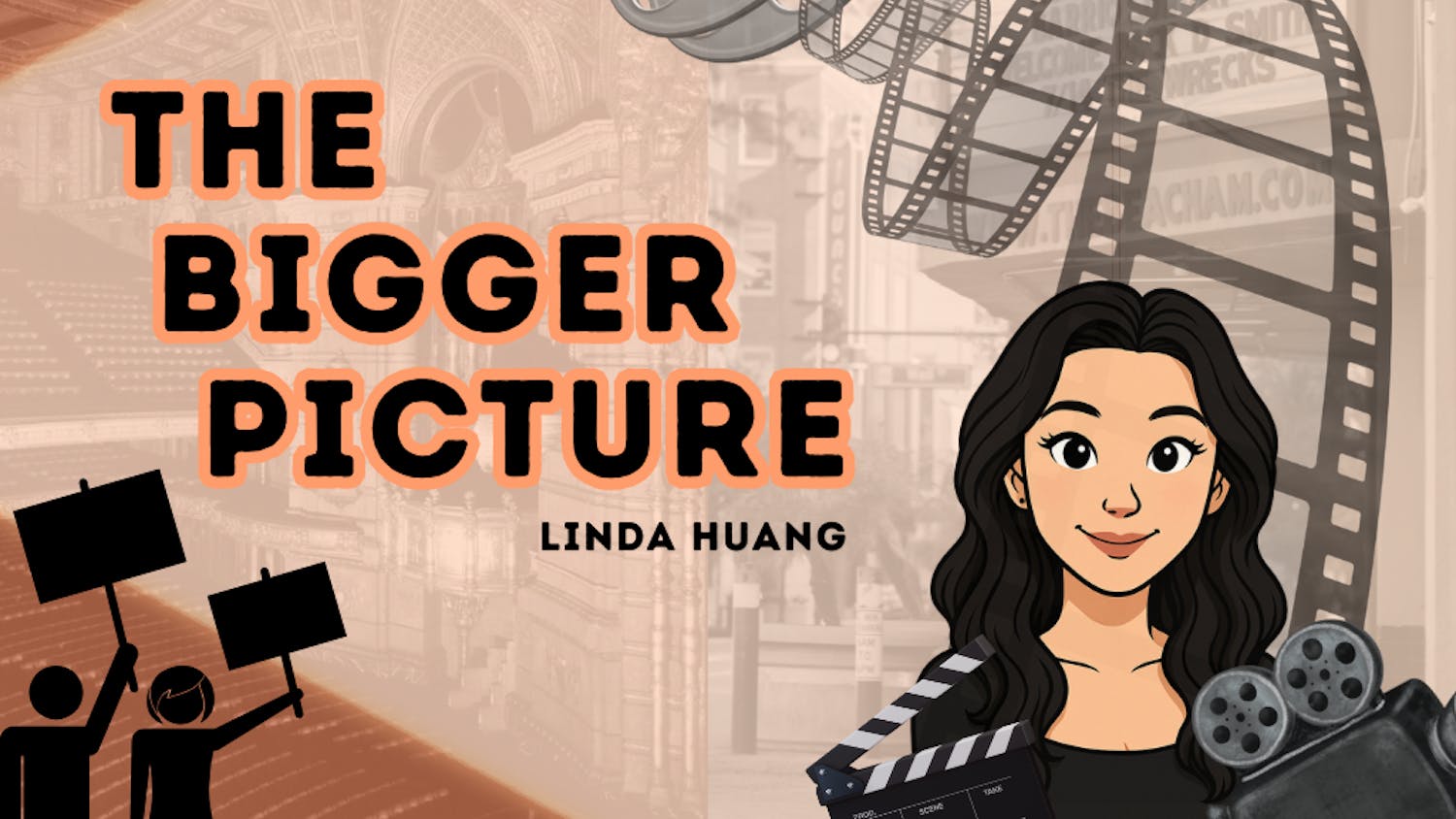How do we know that one's yellow is not another's blue? That two people agree on mangos being yellow may suggest that they speak a shared language that associates the word “yellow” with the object “mango.” However, one may not accordingly assume that these people both see the same color when looking at mangoes, because the visual perceptions that these people both call “yellow” may be vastly different. Essentially, sharing information is not equivalent to sharing experiences. “Kiss” (2014) by Chilean playwright and director Guillermo Calderón exposes the flimsiness of intercultural understanding even in the internet-based 21st century.
The performance crew of “Kiss” in Boston consists a group of undergraduate students at Emerson College; the play is produced through the school’s theater organization ArtsEmerson. The 90-minute play premiered in the Emerson Paramount Center on Oct. 26 and will run through Nov. 19.
Although “Kiss” stands out as the first English play that Calderón has written, it is not at all without thematic precedents. Having lost his uncle to the Pinochet regime in Chile, Guillermo Calderón has dedicated many of his plays to depicting people amidst political struggles. “Escuela” (2013) explores the legacies of a dictatorship in Chile; “Villa” (2011) contemplates the fate of sites of historical institutional crimes.
Act I centers on a supposedly western student theater troupe’s unintentional misrepresentation of a Syrian play that they find online. As audiences walk into the theater, they will find themselves entering a sitcom-like set-up, with an open living room space on stage and two televisions hanging from the ceiling. During the first act, the play immerses the audience in the troupe’s performance of the play, which they understand to be a comic and hysterically cliché melodrama about a love “quadrangle.”
In the play-within-a-play, the friend group of four, consisting of two couples, decides to watch a soap opera together one night at the house of Hadeel, one of the women. Youssif, the boyfriend of the other woman, arrives at Hadeel’s early and starts to madly confess his burning love for her. Throughout the act, the characters, as if unable to make up their minds, constantly switch between excessively proclaiming their love and disgust for one another. They circulate throughout the tiny stage area with the swiftness of dancers. With an absurd sense of humor, the theater troupe attempts to echo a Syrian soap opera, a popular form of entertainment in Syria that seems to be able to, at least for the theater troupe in the play, somewhat unite the country culturally during its current abysmal political upheaval due to the Syrian Civil War.
Little does the audience know, act I is merely a bag of popcorn to prepare them for the tragedy to come. At the conclusion of Act I, the plot takes an astonishing turn that is a gift for the audience, but a conundrum for reviewers. This plot twist is so genius that any spoiler would ruin the mind-blowing experience for future audiences, but it is also so crucial to the delivery of the play’s central message that one can only peripherally discuss the play without analyzing the twist.
That being said, it is not impossible to examine the effects of this twist while keeping its content secret. The twist transcends the boundary between theater and reality. In a sense, the empathy generated by theater, literally a “play” of reality, is more or less artificial. Theater audiences are fully aware of the fact that even the most emotionally powerful theater is very limited at impacting their lives.
After all, once the performance is over, the audiences can leave the story forever and continue their lives without significant change of mind. However, by bringing the characters into reality, or the audiences into the play, the magical twist in “Kiss” makes the audiences treat what is illustrated in the play as not merely a conceived story with a fixed lifespan of a few hours, but an inescapable reality that the audiences have to engage with. This allusion to the popular apathetic treatment of theater is symbolic of people’s often similar attitudes towards distant events: to most non-Syrians, the Syrian Civil War is unfortunately probably more of a combination of newspaper reports and online articles than a reality. In this way, although information about the Syrian Civil War may be thoroughly covered and easily available for non-Syrians, the Syrian experience remains incomprehensible to non-Syrians.
As David Dower, co-artistic director in the ArtsEmerson program, said, “Guillermo does not try to make you feel the plight of Syria. Guillermo makes you feel the distance.”
Guillermo Calderón's 'Kiss' is metatheater for the digital age

Kiss is a brilliant play-within-a-play that shows how misunderstanding cultural cues can reveal blind spots you never knew you had.
Summary
Guillermo Calerdon's 'Kiss,' currently staged in Boston by ArtsEmerson, confronts audiences with inescapable truth.
5 Stars





